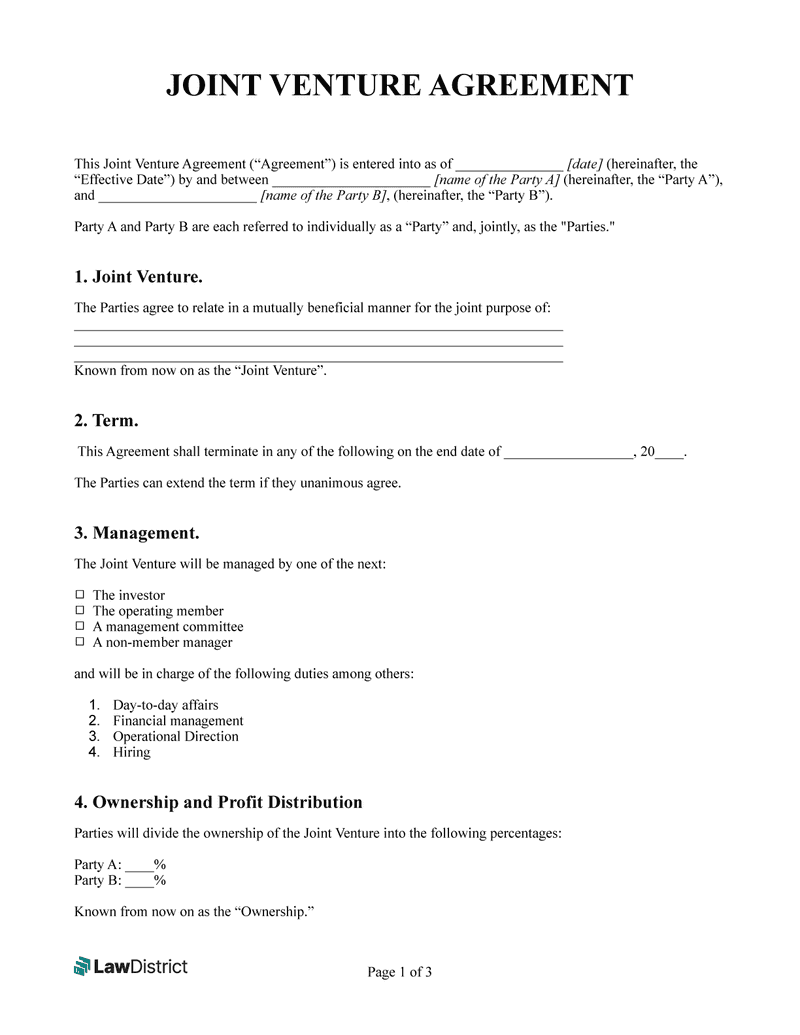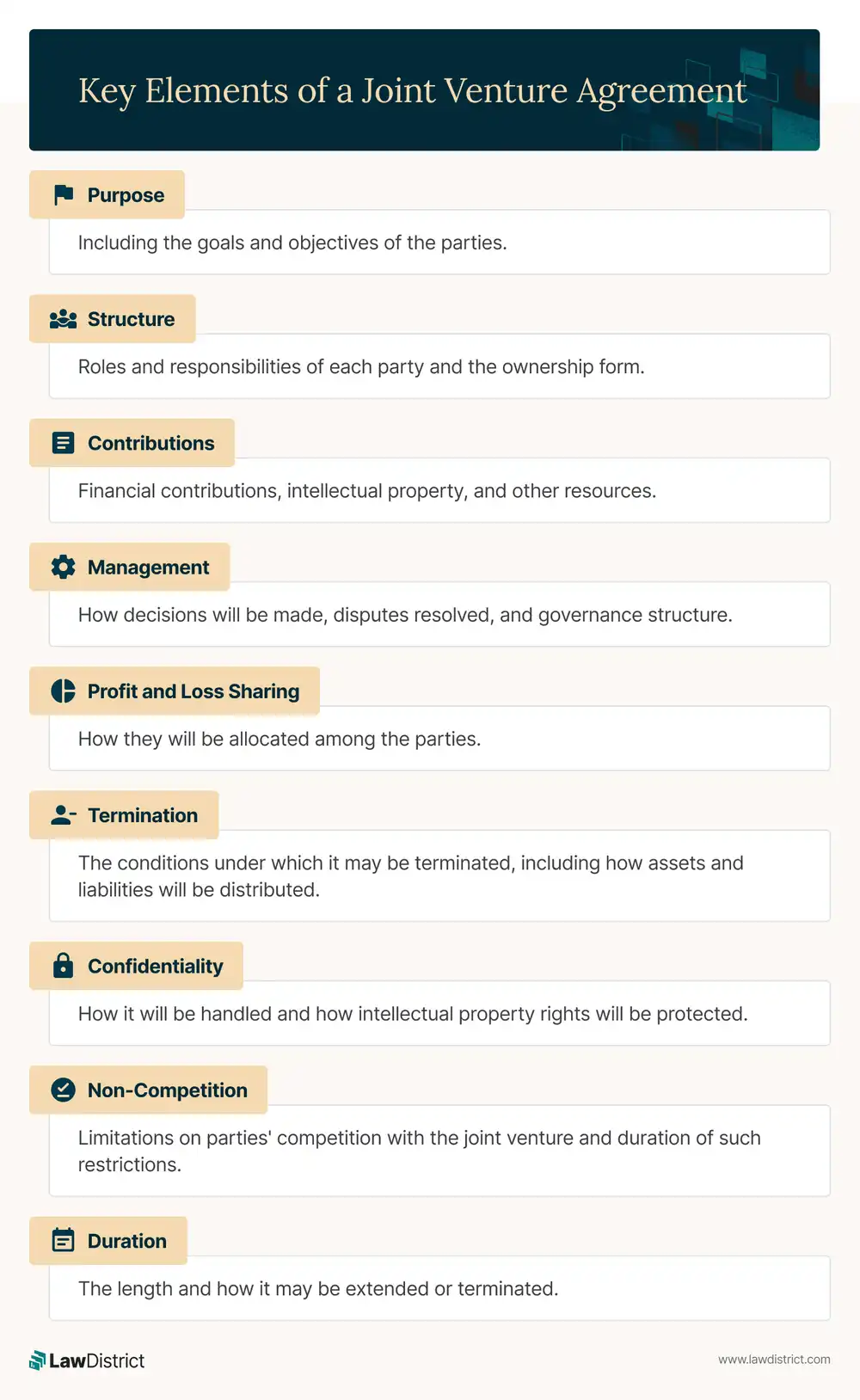Joint Venture Agreements can take various forms, depending on the goals and requirements of the partnering companies.
The following are some common types.
Contractual Joint Venture
This type of Joint Venture Agreement is based on a legally binding contract between the parties involved. It outlines the specific terms, conditions, and responsibilities of each partner without creating a separate legal entity, like an LLC or partnership, for example.
Contractual joint ventures are often used for short-term projects or specific objectives.
Equity Joint Venture
In an equity joint venture, the partnering companies create a new legal entity.
Each partner contributes assets, resources, and expertise to the new entity and shares ownership in proportion to their investment.
This type of venture is typically used for long-term projects and ongoing business relationships.
Consortium
A consortium is a collaborative arrangement in which multiple companies or organizations come together to pool their resources, knowledge, and expertise to achieve a common goal.
Consortiums are often used for large-scale projects, research and development initiatives, or infrastructure development.
Each participant maintains their individual identity, and the consortium operates under a separate agreement or contract.
Strategic Alliance
A strategic alliance is a less formal type of Joint Venture Agreement in which two or more companies collaborate to achieve mutual benefits without creating a new legal entity.
This type of document to start a business often focuses on sharing resources, knowledge, and technology to enhance the competitive position of the partners.
Strategic alliances can be short-term or long-term, depending on the scope and objectives of the collaboration.
Franchise Joint Venture
In a franchise joint venture, an established company (the franchisor) allows another company or individual (the franchisee) to use its brand, business model, and resources to operate a business under the franchisor's guidance.
The franchisee typically pays a fee and royalties to the franchisor and benefits from the established brand, marketing, and support provided by the franchisor.
This type of joint venture is common in the retail and food service industries.
Technology Licensing Joint Venture
This type of joint venture involves a technology owner (licensor) granting another company (licensee) the rights to use, develop, or produce its technology for a specific purpose.
The licensor usually receives royalties or a licensing fee in return, while the licensee benefits from access to the technology without investing in research and development.
This type of joint venture is prevalent in technology-driven industries such as pharmaceuticals, software, and manufacturing.
Real Estate Joint Venture Agreement
A joint venture in real estate is a strategic partnership formed between two or more individuals, companies, or entities to develop, manage, or invest in a property project.
By pooling resources, expertise, and capital, the parties involved can take advantage of each other's strengths, share risks, and increase the chances of success.
Joint venture real estate projects can encompass various types of properties, such as residential, commercial, or industrial developments.
The parties involved may contribute in different ways, such as providing land, financing, construction expertise, or property management services.
Marketing and Distribution Joint Venture
In a marketing and distribution joint venture, companies collaborate to pool their resources, expertise, and networks, enabling them to promote and distribute their products or services more effectively.
This partnership can lead to shared marketing resources, expanded distribution channels, cross-promotion opportunities, cost savings, and risk mitigation.
By working together, the involved parties can create more impactful marketing campaigns, access new markets, reduce logistical challenges, and increase the availability of their offerings to consumers.

